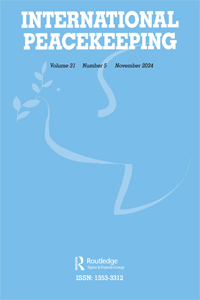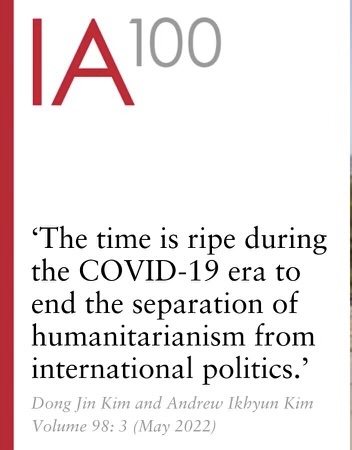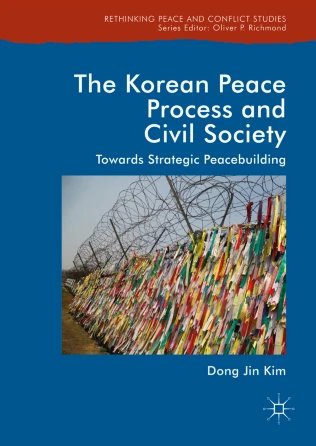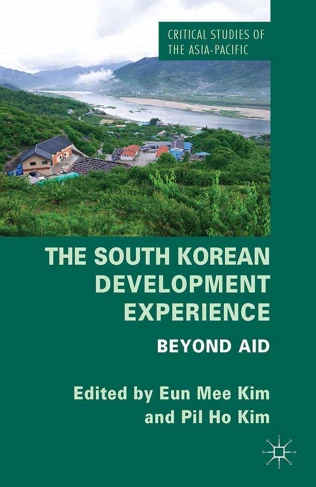Journal Article, 2025
This article examines the utility of the Triple (Humanitarian, Development, Peace) Nexus in linking aid cooperation to peacebuilding by conducting a case study on the Korean peninsula. Since the 1990s, humanitarian and development cooperation in North Korea has raised hopes that such cooperation could contribute to peacebuilding on the Korean Peninsula. However, these aid efforts have been marked by significant fluctuations due to heightened tensions on the Korean Peninsula. This study employs a qualitative methodology, including problem-centred expert interviews with former/current officials from the UN, and European aid agencies, who are considered relatively neutral, and the US and South Korean aid agencies, whose countries are main parties in the Korean conflict. Drawing on the interrelated theoretical insights of contact theory and strategic peacebuilding, the findings suggest that aid actors have different strategic advantages and disadvantages in operationalizing the Triple Nexus, according to their positionalities concerning the protracted Korean conflict context. We argue that for the Triple Nexus to represent more than a mere rebranding of contentious efforts to connect aid and peacebuilding, it requires, not only the recognition of potential comparative advantages of different sectors, but also the understanding of strategic advantages and disadvantages of actors with different positionalities.
Journal Article, 2022
The COVID-19 pandemic has exposed increasing global inequality in responding to the issues of health. How do we resolve the tension between normative concerns for global responsibility and strategic concerns for national interest in facilitating health aid to vulnerable populations in low-income countries in the COVID-19 era? This article presents global health diplomacy as a conceptual framework that could overcome the dichotomy of humanitarianism and international politics, using health aid to North Korea during COVID-19 as a case-study. Health is a critical component of human dignity and can be a normative motivation for cooperation beyond sovereign borders. However, health is also an important element of national interest and can be a strategic motivation for transnational cooperation. The overlap between the moral and rational spaces in global health diplomacy demonstrates how COVID-19 assistance to North Korea’s vulnerable population is in the enlightened self-interest of donors to prevent resurgences of new COVID-19 variants. Moreover, this framework imbues all parties, including aid recipients such as North Korea, with the global cooperative responsibility to address health. In this sense, global health diplomacy can reframe the tensions between humanitarianism and politics, morality and rationality, and cosmopolitanism and nationalism, from antithetical to complementary.
Book, 2019
Towards Strategic Peacebuilding
The Post-Cold War era witnessed a dramatic rise in breakthroughs for peace processes, including the Korean peninsula, between parties mired in protracted conflict. However, many such processes broke down within a short period of time. This book explores the possibilities for comprehensive and sustainable peacebuilding strategy in the Korean peace process, beyond reaching an agreement, by reviewing diverse peacebuilding activities from government and civil society.
Journal Article, 2016
linking development and peacebuilding on the Korean peninsula
This article discusses the link between development and peacebuilding to analyze South Korean aid activities in North Korea in the context of the Korean conflict, where there are deep-rooted cycles of conflict episodes, and to explore the possibility of aid for peace on the Korean peninsula in the future. The Korean conflict is a large part of what makes South Korean aid to North Korea ineffective. For the past 20 years, South Korean aid to North Korea has fluctuated greatly, due to the context of the Korean conflict. The Korean conflict, once seemingly on the way to resolution, appears to have reverted to a time before the end of the Cold War. Many people in both the North and the South still see each other as the enemy. Most of the South Korean aid projects in North Korea have been suspended indefinitely and the fluctuation of aid to North Korea caused serious debates within South Korean society. At one point, the debates grew so heated that they were called the ‘South–South conflict’. Building on the conceptual framework of conflict sensitive development and strategic peacebuilding, this article argues that, to overcome the current impasse, all stakeholders must better understand the context of the Korean conflict and the interaction between the context and themselves, and develop a comprehensive strategy together, to encompass the multiple issues raised by the Korean conflict, as strategic peacebuilding proposes.
Book Chapter, 2014
Nowhere is South Korean international assistance more substantial, more important, and yet more controversial than that which has been offered and delivered to the fraternal enemy state of North Korea. Indeed, there are problems in even terming this “international assistance,” and it is never referred to as official development assistance or ODA, for both political entities on the Korean Peninsula consider themselves as the sole legitimate state responsible for the governance of all Koreans living there, regardless on which side of the demilitarized zone (DMZ) they live. Yet both states have been admitted to the United Nations (UN) and have been recognized by the international community as possessing both de facto and de jure sovereignty. Regardless of how the politicians on both sides may protest the nuances, aid passing from one to the other constitutes, at the very least, international assistance, even if it is not classified as ODA.





